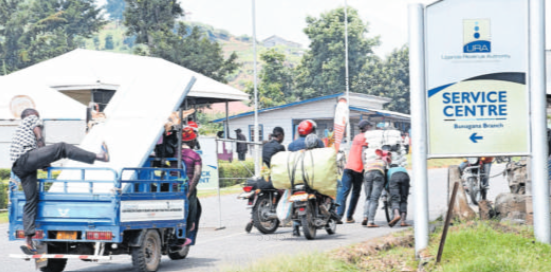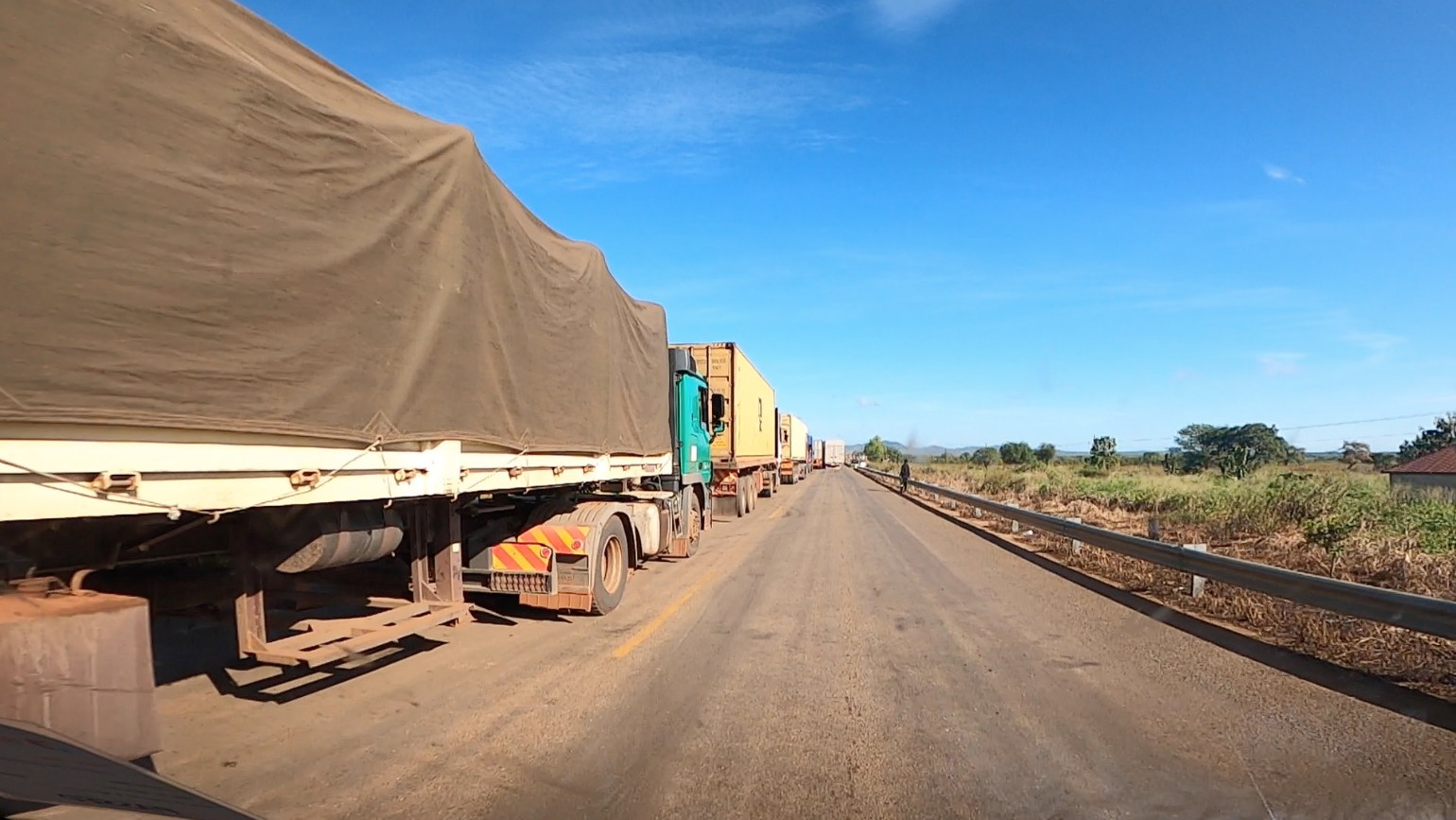Prime
Leaders expose underbelly of Bunagana’s shadow economy

People transport merchandise from Uganda to the DR Congo through the closed Bunagana border post. PHOTO | ROBERT MUHEREZA
What you need to know:
- The chairman of the business community at Bunagana border post, Mr James Hashaka, said some of the goods taken to the DR Congo from Kisoro District, include food stuffs, soft drinks, beer and building materials such as cement, iron sheets and iron bars.
Local leaders and traders in Kisoro District have raised the red flag over alleged illegal cross-border business at Bunagana border.
Bunagana border post in Kisoro District used to be a lucrative business centre that hosted hundreds of traders. More than 100 cargo trucks transporting transit goods from the Great Lakes region would be recorded in a single day. But until June 2022 when the M23 gained control of Bunagana border town on the DR Congo side after defeating the government forces that had been deployed there, everything has changed.
The Kisoro District chairman, Mr Abel Bizimana, said the government was losing revenue as a result of the illegal cross-border business. He added that the administration of the M23 rebels are selectively dealing with a few traders, something he said might result in hatred and animosity among traders.
“During the time when the East African Community Regional Forces (EACRF) were deployed in the eastern DR Congo on a peace mission, there was relative peace in the formal business environment that was benefiting all the interested traders, but when they with drew and the M23 rebel leadership took charge of the area, they started selecting traders to deal with in terms of getting goods and services from Kisoro,” Mr Bizimana said.
He added that the illegal business where some traders are seen transporting merchandise from Uganda to the DR Congo using Tuktuk motorcycles and bicycles must be checked by the authorities because it is denying government taxes.
But the Uganda Revenue Authority officer in charge of customs operations in south western region, Mr Milton Rahuka, dismissed the claims of the illegal business, saying trade among the border community members is allowed, although the border post was closed for international trade.
“Although Bunagana border is closed for international trade because of the armed conflict in the DR Congo, we encourage cross-border trade because people in the border communities must survive by getting food from Uganda.
“If goods are from the other side and they are coming in and they are not paying taxes, that is when there will be an alarm, but we are getting some money from some things that come from the DR Congo,” Mr Rahuka said.
He added: “True we are losing a lot of money because the border is closed for transit goods, but people have to survive. If they do not take posho and other foodstuffs (to DR Congo), what will they eat? Cross-border trade is okay but not international trade.”
The chairman of the business community at Bunagana border post, Mr James Hashaka, said some of the goods taken to the DR Congo from Kisoro District, include food stuffs, soft drinks, beer and building materials such as cement, iron sheets and iron bars.
“While majority traders closed their businesses for lack of customers, the remaining ones are struggling amid heavy taxes demanded by the government inform of trading licence and income tax. We appeal for tax exemptions to allow the struggling traders to remain in business,”Mr Hashaka said.
The town clerk of Bunagana Town Council in Kisoro District, Mr Benjamin Akankwasa, said they have lost a lot of local revenue because most of the shops, hotels and lodges are closed, while the loading and offloading activities that used to generate local revenue for the town council are now operating at half capacity.
“Buganana Town Council used to collect local revenue and taxes from several shops, hotel and lodge operators because of the booming cross-border trade. After the closure of the border and restricted cross-border trade, revenue collection reduced by a half. In the FY2022/2023, we only collected Shs74m out of the planned Shs153m as local revenue. For Bunagana daily market where the town council used to get about Shs34m per year, only Shs15m was collected,” Mr Akankwasa said.




